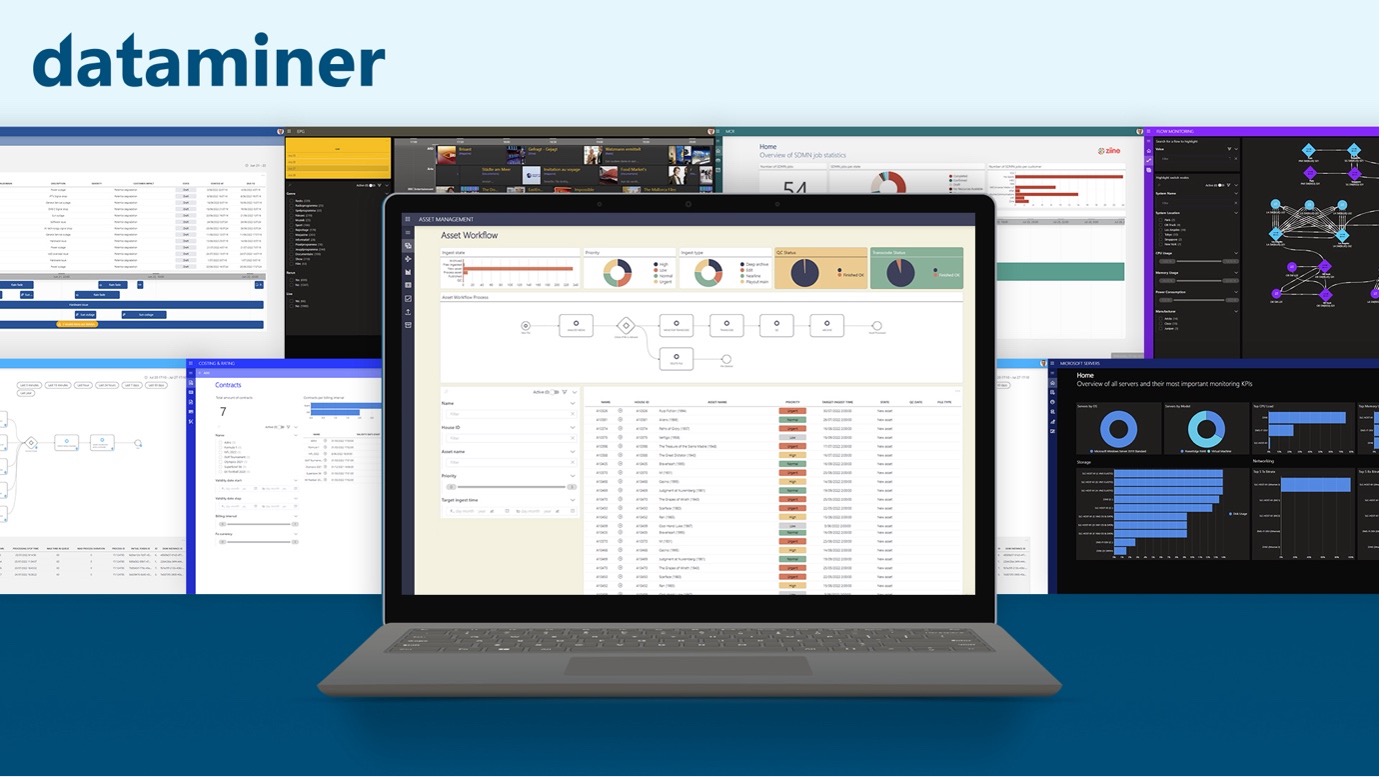Modular “service and resource scheduling and orchestration” toolkit to premiere at IBC
With the media, broadband, and IT industry stepping into a new world full of transformational technology, deploying automated workflows and processes has never been more important in order to be successful in a data-driven world. This not only affects technology workflows such as secure onboarding of new infrastructure. It also applies to all operational and business workflows, for example to create a ticket after an incident or to automatically generate an SLA report for a production.

Building upon DataMiner’s digital twin, which gives real-time access to the data and control plane across any vendor and any technology, DataMiner automation and orchestration tools help build and automate workflows and processes tailored to the customer’s individual business, operation, and resources.
To become agile and data-driven, it is key to deliver easily and quickly, and therefore all tools are natively embedded in DataMiner’s CI/CD pipeline, which provides a highly automated test environment to empower every user to constantly add new features and evolve workflows and processes to make digital transformation a reality.
DataMiner Object Models (DOM)
Orchestrating a service or an event starts with collecting vast amounts of administrative data. The DataMiner Object Models (DOM) module is optimized to freely define any kind of data model. Being stateful, controlled, and stepwise, data collection and completion has never been easier.
DataMiner Process Automation (PA)
To hand over data from one stakeholder to another, DataMiner Process Automation (PA) is the right tool to execute activities such as submitting an order request or confirming the start of an event. Based on BPMN (business process modelling notation), Process Automation comes with a set of out-of-the-box activities and with the freedom and flexibility to create new activities on the fly at any point in time.
DataMiner Low-Code Applications
DataMiner Low-Code Applications are easy-to-design and easy-to-operate web-based apps to visualize and handle the data stored in the object models. Data and apps can be shared between teams in the enterprise and, thanks to the built-in DataMiner security tools, also with partners outside the organization. Service providers can, for example, deploy targeted booking portal apps for their media customers so they can book satellite, fiber, or 5G connectivity straight away.
DataMiner Service and Resource Manager
With the DataMiner Service and Resource Manager module, administrative data gets converted into action. Reservations for physical and virtual resources are made and then get pre-configured and connected to each other (IP, SDI, ASI, RF, etc.) right before the event starts. And once the service is live, DataMiner proactive monitoring and alarm management ensures delivery of the highest service quality.
DataMiner collaboration tools
Finally, with DataMiner collaboration tools such as our new Microsoft Teams chatbot for DataMiner, it has never been easier to share information with people both inside and outside your organization. The same goes for DataMiner Dashboards. With a click of a button those can be securely shared with anybody. And as collaboration is no longer limited to communication between people, DataMiner’s user-definable APIs are the perfect tool to easily deploy targeted RESTful APIs on the fly, for example to pass event and resource utilization data from DataMiner to a third-party billing system.
To become agile and data-driven, it is key to deliver easily and quickly, and therefore all those tools are natively embedded in DataMiner’s CI/CD pipeline, which provides a highly automated test environment to empower every user to constantly add new features and evolve workflows and processes to make digital transformation a reality.